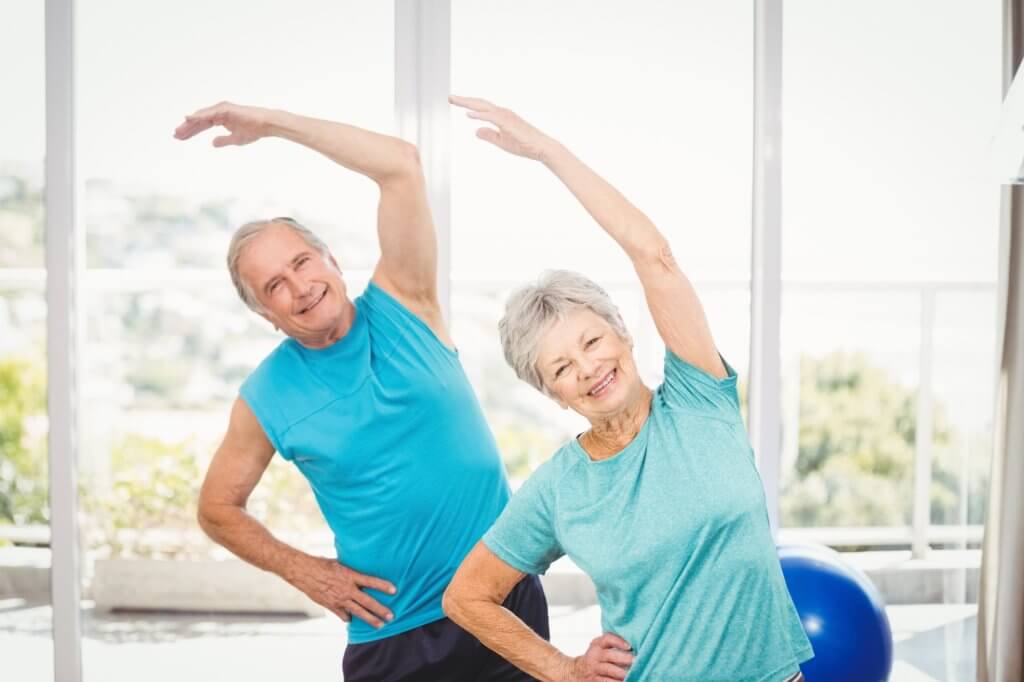Did you know that 80% of Americans don’t get enough exercise? This is a problem for young people and seniors alike, but for seniors, there may be greater risks.
Many people undervalue the importance of senior exercise. Why stay fit and healthy when you should be kicking back and relaxing during your golden years? What are the benefits anyway?
We’re here to talk about it. Read on to learn all about the benefits of senior exercise (as well as a few recommendations for exercises for seniors).
Routine Exercise Can Prevent Falls
Senior adults report 36 million falls every year. Many of these falls result in serious injuries (or even death). While many people think that falls are inevitable, this doesn’t have to be true.
When seniors exercise, they improve their balance, flexibility, and mobility. They improve their core strength and get more agile (relatively speaking). All of these things will help the seniors stay on their feet.
While it’s true that there will always be some mobility and balance loss as people get older, you can mitigate this problem with exercise.
It’s Great for Mental Health
While exercise is clearly good for physical health, did you know that it’s also one of the best things that people of all ages can do for their mental health? That’s right, breaking a sweat can make you feel better.
When you exercise, your body releases endorphins. These endorphins can give you more energy, reduce depression and anxiety, help with sleep, and more. This is what people are talking about when they refer to “runner’s high,” but you don’t have to run for miles to get the same results.
Most forms of moderate to intense exercise will result in more endorphins.
Mental health is a genuine problem for many seniors. Physical exercise won’t fix everything, but it will make a huge difference.
It May Reduce the Risk of Dementia
Dementia is a debilitating condition without a cure. It’s not completely preventable, but aerobic exercise may be one of the keys to reducing the risk of dementia and slowing down the progression of the disease if it’s already started.
Research suggests that aerobic exercise reduces hippocampus atrophy. It also leads to better vascular health (and as a result, better brain health).
Even without dementia, exercise is great for your memory and overall cognitive function. People who exercise stay “sharper” for longer and tend to display the cognitive abilities of people much younger.
It Helps With Bone Density
As people get older, they begin to lose bone density. This is a larger problem for people who have gone through menopause, but it happens to everyone regardless of their sex.
When you put more pressure on your bones (consistent pressure through exercise), you’re helping your bone density. Even jogging around the park will help boost bone density because of the steady pressure that it puts on the legs.
It Keeps Weight Under Control
Many seniors struggle with weight management. When you’re no longer as active and you don’t need as many calories to maintain your weight, it makes sense that your normal dietary habits would cause you to gain a few pounds.
There’s nothing wrong with gaining some weight as a senior, but too much weight gain can lead to health problems. It can put a strain on your joints, lead to potential diseases, and more.
Even a few minutes of mild to moderate exercise per day can make a huge difference. Get moving and burn calories while doing something fun.
It May Prevent or Control Certain Diseases
Not all diseases are preventable, but many of them can be either prevented or controlled with a healthy exercise routine.
Heart disease, type 2 diabetes, and certain forms of cancer are easier to get under control when you incorporate exercise into your routine. Exercise, when started early enough, can also prevent some of these conditions in the first place.
It can reduce high blood pressure which will make you less likely to develop heart disease.
It can also help with certain chronic health conditions, such as joint problems and other types of chronic pain.
What Are Good Senior Exercise Options
So what types of exercises should seniors be doing?
When it comes to staying active in your golden years, any exercise is better than no exercise. That’s right, even if you don’t feel capable of running a marathon or lifting heavy weights, you can still make a huge difference just by doing what you can.
Walks and jogs are fantastic forms of exercise for seniors. For seniors who struggle with joint pain, swimming and cycling are also effective.
Water aerobics is popular for seniors because of its ability to strengthen without putting too much strain on the body.
Many seniors enjoy doing yoga. Yoga is great for flexibility and core strength and there are yoga routines for everyone, even people who require mobility devices.
This isn’t to say that seniors can’t participate in more intense exercises. As long as you’re staying active and safe, you’ll reap the benefits of senior exercise.
All Seniors Should Stay Active
Never underestimate the benefits of exercising for seniors. Senior exercise will keep older adults healthy well into their golden years. It will prevent significant weight gain, reduce the risk of certain conditions, and make seniors feel great mentally. As long as seniors are careful, there are no downsides.
Are you a senior (or do you know a senior) who wants to stay active and safe? Royal Garden Board and Care Homes could be your new community! Contact us to learn more today.
